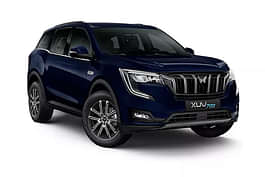
Electric vehicles comprise of much less number of moving components when compared to similar vehicles equipped with an internal combustion chamber. Ever wondered what makes electric vehicles so expensive? Batteries are one of the most expensive components involved in the manufacturing of an electric vehicle and there are certain plans and reforms in the current policy layout and implementation which can assure electric vehicles to get cheaper in future in the Indian Homelands. Stay tuned to know more.
In the recent days, we have come across multiple incidents where electric vehicles have burnt down to flames. To investigate this issue, exclusive technical teams were deployed for research and diagnostic purposes. One of the prospective reasons turned out to be the outsourced manufacturing of electric vehicle batteries. In most of the existing lead acid cell batteries which are used by almost all automotive manufacturers, these batteries are manufactured outside India and then tests are carried out after importing them.
As per the authorities, fire hazards due to batteries can be controlled by manufacturing electric vehicle batteries in India itself. As these batteries would be manufactured from the scratch in Indian conditions, certain modifications can be made accordingly. This will not only help in regulating the quality of batteries but also aid to reduce the cost of electric vehicles as they would be manufactured natively.

The government has announced an Advanced Cell chemistry (ACC) programme earlier in March 2022. This programme was oversubscribed by 2.6 times. Under this programme, specific companies would receive incentives to invest funds in battery storage. This development would help in evolving the electric vehicle ecosystem in India at a much faster pace as the requirements and configurations can be personalised at cheaper costs. Manufacturing battery cells in India would also facilitate low maintenance costs and eliminate the dilemma of battery longevity as battery maintenance would no longer be a hectic procedure to be undertaken.
Also Read: Hero Electric Announced Free Battery Check Up And Service Camp
The battery cells fitted in almost all electric vehicles feature a battery management system which helps to cool or heat the cells as per the external temperature, driving pattern, road conditions, power left and many other factors. As these factors are considered to be the input parameters, they can be customised for use as per different conditions.
For the time being, the imported batteries currently in use in automobiles of different segments should be evaluated with certain specifications under test conditions in both laboratory and real life. Therefore, a minimum threshold of requirements should be set so as to avoid mishappenings. Alongside batteries, other components related to batteries like sealants, thermal pads, encapsulants etc. would also require significant modifications and dedicated engineering as per the battery.
Also Read: Swappable Battery Model Not In Favour Of EV Adoption: Here's What Ather Energy Has to Say
Many multinational companies have set up their battery cell manufacturing centres in India and have entered into joint ventures with Indian companies as well. Moreover, some Indian companies have invested in start-ups involved in developing battery technology and assure electric vehicles to get cheaper with time.





















